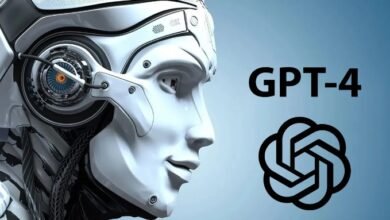The future of AI language models like ChatGPT

What does the future hold for AI language models like ChatGPT? Here are some potential developments that we may see in the coming years:
-
Increased Accuracy and Efficiency
One of the biggest challenges facing AI language models is improving their accuracy and efficiency. While models like ChatGPT are already quite accurate, there is always room for improvement. In the future, we may see AI language models become even more precise and efficient, allowing them to process and understand language more effectively.
This could be achieved through the use of more advanced algorithms and training techniques, as well as improvements in hardware and computational power. As AI models become more accurate and efficient, they will be able to tackle increasingly complex tasks, such as natural language processing and machine translation, with greater ease.
-
Greater Flexibility and Adaptability
Another potential development in the future of AI language models is greater flexibility and adaptability. As the range of applications for these models continues to expand, it will be important for them to be able to adapt to different contexts and use cases.
This could be achieved through the use of modular architectures, where different components of the model can be added or removed depending on the task at hand. Additionally, AI language models may become more context-aware, allowing them to understand and adapt to different linguistic and cultural contexts.
-
Integration with Other Technologies
As AI language models become more sophisticated, they will increasingly be integrated with other technologies, such as robotics, IoT, and virtual assistants. This integration will allow for more seamless and intuitive interactions between humans and machines, enabling new applications and use cases.
For example, AI language models could be integrated with robots to enable more natural and intuitive communication between humans and machines. Similarly, they could be integrated with virtual assistants to enable more sophisticated and personalized interactions.
-
Ethics and Transparency
As AI language models become more powerful and ubiquitous, there will be increasing concerns about their ethics and transparency. This will be particularly important in applications like natural language processing, where AI models are used to make decisions that can have a significant impact on people’s lives.
To address these concerns, AI language models will need to be designed with transparency and accountability in mind. This could involve making the models more interpretable so that their decisions can be understood and explained. It could also involve creating mechanisms for auditing and monitoring the models, to ensure that they are making ethical and unbiased decisions.
In conclusion, the future of AI language models like ChatGPT is incredibly exciting. We can expect to see continued advancements in accuracy and efficiency, as well as greater flexibility and adaptability. Additionally, we will see increased integration with other technologies, as well as a growing focus on ethics and transparency. As AI language models become more sophisticated and capable, they will enable a wide range of new applications and use cases, transforming the way we interact with machines and with each other.






